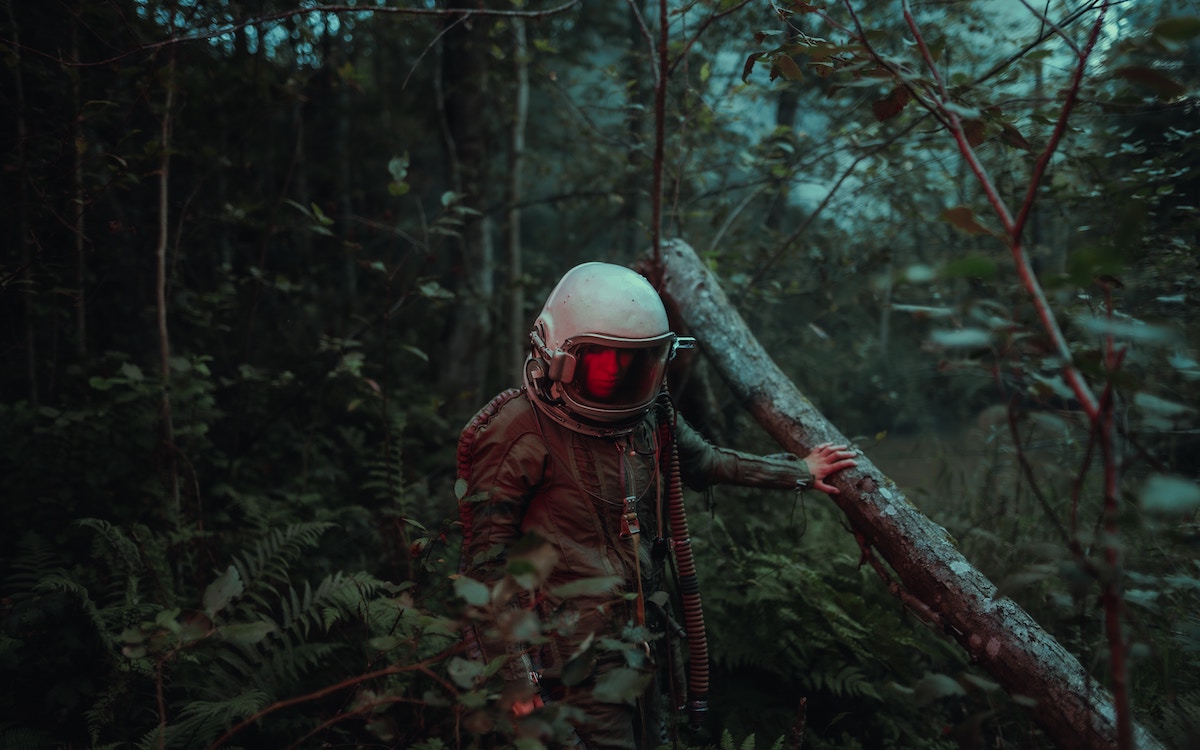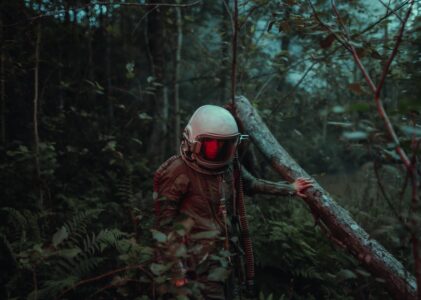Explore the captivating world of science fiction novels, from classic space operas to mind-bending dystopias. Discover influential authors and subgenres that have shaped this genre over time.
Introduction: Entering the Sci-Fi Universe
Science fiction (Sci-Fi) is a genre that ignites the imagination, transporting readers to distant galaxies, alternate realities, and advanced civilizations. Rooted in scientific principles, yet unbounded by them, these novels envision what might be possible in the future. Sci-Fi’s allure lies in its ability to blend futuristic technologies, speculative scenarios, and thought-provoking social commentary. Let’s embark on a thrilling journey through the vast cosmos of Sci-Fi novels, exploring different subgenres and the authors who pioneered them.
What is Sci-Fi
Science fiction, often abbreviated as Sci-Fi, is a genre of speculative fiction that explores imaginative concepts and scenarios based on scientific principles, technology, and the unknown possibilities of the future. It is characterized by its focus on scientific accuracy (in hard Sci-Fi) or its departure from real-world constraints (in soft Sci-Fi) to create fictional worlds and narratives that push the boundaries of human knowledge and imagination.
In Sci-Fi, authors envision scenarios that may arise from advances in technology, space exploration, time travel, parallel universes, extraterrestrial life, artificial intelligence, and more. The genre often incorporates futuristic settings, advanced civilizations, interstellar travel, and often comments on the human condition and societal issues through allegory or metaphor.
One of the essential elements of Sci-Fi is its speculative nature, where authors contemplate the “what if” scenarios that arise from scientific theories or technological possibilities. While some stories may take place in the distant future, others may be set in alternate realities, post-apocalyptic worlds, or in times where advanced technologies coexist with historical periods.
Science fiction has a long history and has contributed significantly to literature, film, television, and various other media. It has captured the imaginations of people across generations, inspiring not only entertainment but also shaping discussions on ethics, philosophy, and the future of humanity.
The History of Sci-Fi
The history of science fiction (Sci-Fi) is a fascinating journey that stretches back centuries, encompassing a rich tapestry of literary works, imaginative ideas, and cultural influences. Let’s embark on a chronological exploration of the key milestones and influential moments that have shaped the evolution of this beloved genre.
1. Early Roots: The Birth of Speculative Fiction (17th – 18th Century)
The origins of science fiction can be traced back to the early roots of speculative fiction. In the 17th and 18th centuries, authors began exploring imaginative and fantastical ideas about the universe and the natural world. Works like Johannes Kepler’s “Somnium” (1634), Cyrano de Bergerac’s “The Other World: Comical History” (1657), and Voltaire’s “Micromégas” (1752) offered glimpses into other worlds, distant planets, and the possibilities of extraterrestrial life.
2. The Emergence of Industrialization and Gothic Sci-Fi (19th Century)
The 19th century saw the rise of industrialization, scientific advancements, and a growing fascination with the mysteries of the universe. This period gave birth to the subgenre known as Gothic science fiction, which blended elements of horror, romanticism, and the supernatural with scientific themes. Mary Shelley’s “Frankenstein” (1818), often considered one of the first science fiction novels, explored the ethical dilemmas of creating life through science.
3. Jules Verne and the Advent of Scientific Voyages (19th Century)
Jules Verne, a pioneer of early science fiction, emerged in the 19th century with a series of influential novels known as the “Voyages Extraordinaires.” Verne’s works, such as “Twenty Thousand Leagues Under the Sea” (1870) and “Journey to the Center of the Earth” (1864), took readers on thrilling adventures that combined scientific principles with imaginative storytelling. His novels celebrated human curiosity and the potential of scientific exploration.
4. The Golden Age of Sci-Fi (1920s – 1940s)
The early 20th century marked the Golden Age of science fiction, a period of prolific output and significant developments in the genre. Pulp magazines like “Amazing Stories” (1926) brought science fiction to a broader audience, and legendary authors such as H.G. Wells, Isaac Asimov, Arthur C. Clarke, and Robert A. Heinlein emerged as leading figures in the field.
5. The Wave of Space Opera and Post-WWII Sci-Fi (1940s – 1950s)
The 1940s and 1950s saw the rise of space opera, a subgenre characterized by epic space adventures, interstellar conflicts, and grand civilizations. E.E. “Doc” Smith’s “Lensman” series and Edmond Hamilton’s “Captain Future” stories exemplified the spirit of space opera during this period. Additionally, the aftermath of World War II and the Cold War influenced Sci-Fi, giving rise to dystopian and cautionary tales about the consequences of technology and atomic warfare.
6. The New Wave of Sci-Fi (1960s – 1970s)
The 1960s and 1970s brought about the New Wave movement in science fiction, characterized by a departure from traditional narratives and a focus on experimental storytelling and social commentary. Authors like Ursula K. Le Guin, Philip K. Dick, and Samuel R. Delany pushed the boundaries of the genre with works that explored complex characters, psychological themes, and sociopolitical issues.
7. Cyberpunk and the Digital Revolution (1980s – 1990s)
The 1980s and 1990s witnessed the rise of cyberpunk, a subgenre that explored the merging of technology, virtual reality, and the human mind. William Gibson’s “Neuromancer” (1984) is often regarded as the quintessential cyberpunk novel, envisioning a world where the internet and cyberspace play a central role. Cyberpunk reflected the growing impact of the digital revolution on society and inspired countless works in literature, film, and gaming.
8. Diversity and Expanding Horizons (2000s – Present)
The 21st century has seen a diversification of Sci-Fi, with a wide range of subgenres and themes that reflect contemporary concerns and visions of the future. Afrofuturism, climate fiction (cli-fi), biopunk, and solarpunk are just a few examples of the diverse expressions within modern Sci-Fi. Authors such as Octavia E. Butler, N.K. Jemisin, Liu Cixin, and Ann Leckie have received critical acclaim and expanded the genre’s boundaries.
Sci-Fi Subgenres
1. Classic Space Operas: Embarking on Galactic Adventures
Space opera, a quintessential subgenre of Sci-Fi, takes readers on epic journeys through the vastness of space, weaving together interstellar battles, grand civilizations, and heroic figures. These stories often center around daring space captains, rogue smugglers, and noble rebels battling against tyrannical empires. One of the most influential examples of space opera is:
Example: “Dune” by Frank Herbert
“Dune” is a masterpiece that delves into political intrigue and ecological themes. Set on the desert planet Arrakis, it follows the young Paul Atreides as he navigates a hostile landscape and becomes embroiled in the power struggles over the valuable substance known as spice. This 1965 novel blends adventure, mysticism, and complex characters, making it a cornerstone of space opera literature.
2. Cyberpunk: A Glimpse into Dystopian Techno-Futures
Cyberpunk presents a darker vision of the future, characterized by advanced technology, corporate domination, and gritty urban landscapes. In these dystopian worlds, cybernetic enhancements, virtual realities, and artificial intelligence blur the line between humanity and machines. An iconic example of cyberpunk is:
Example: “Neuromancer” by William Gibson
Published in 1984, “Neuromancer” is a seminal cyberpunk novel that introduces readers to the concept of cyberspace. Case, a washed-up computer hacker, is hired for a dangerous job that leads him into a labyrinthine world of intrigue and deception. This novel’s exploration of the virtual realm and its impact on society has left an indelible mark on the cyberpunk genre.
3. Post-Apocalyptic Fiction: Surviving the Aftermath
Post-apocalyptic Sci-Fi imagines the world after cataclysmic events have reshaped society. These narratives often focus on the struggles of survivors as they battle for resources, confront new threats, and rebuild civilization. A prime example of post-apocalyptic fiction is:
Example: “The Road” by Cormac McCarthy
“The Road,” published in 2006, is a hauntingly beautiful novel that follows a father and son as they traverse a desolate landscape in search of safety and hope. McCarthy’s spare prose and emotional depth captivate readers, reflecting on themes of resilience and love amidst devastation.
4. Hard Science Fiction: Where Science and Imagination Collide
Hard Sci-Fi prides itself on scientific accuracy and realism, grounding its speculative ideas in scientific principles. These stories explore the potential consequences of scientific advancements and technological breakthroughs. A prominent work of hard science fiction is:
Example: “Rendezvous with Rama” by Arthur C. Clarke
“Rendezvous with Rama” introduces readers to a mysterious alien spacecraft, named Rama, which enters our solar system. Clarke’s attention to scientific detail creates a plausible and awe-inspiring portrayal of an extraterrestrial encounter. The novel’s exploration of humanity’s reaction to the unknown is a hallmark of hard Sci-Fi.
5. Steampunk: Blending the Past and the Future
Steampunk is a genre that blends elements of the Victorian era with futuristic technology. These stories often reimagine history, envisioning a world where steam-powered machinery, clockwork gadgets, and dirigibles are commonplace. A standout example of steampunk is:
Example: “The Difference Engine” by William Gibson and Bruce Sterling
Published in 1990, “The Difference Engine” envisions an alternative history where Charles Babbage’s analytical engine was successfully built, ushering in an early information age. The novel’s fusion of historical figures and imaginative inventions exemplifies the allure of steampunk.
6. Space Western: Merging Sci-Fi and the Wild West
Space Westerns, as the name suggests, infuse Sci-Fi elements into the Wild West setting, combining the frontier spirit with spacefaring adventures. These narratives feature rugged cowboys, lawless territories, and clashes between good and evil. A remarkable example of a Space Western is:
Example: “Firefly” (TV series) created by Joss Whedon
While “Firefly” is a TV series, it exemplifies the Space Western subgenre and has a profound influence on Sci-Fi storytelling. Set in a distant star system, the show follows the renegade crew of the spaceship Serenity as they navigate through dangerous planets and engage in thrilling escapades. Joss Whedon’s masterful storytelling and compelling characters have made “Firefly” a cult classic.
7. New Wave Sci-Fi: Breaking Boundaries of Style and Content
New Wave Sci-Fi emerged in the 1960s and 1970s, breaking away from the traditional Sci-Fi conventions and embracing experimental narratives and literary techniques. This subgenre often explored surreal and philosophical themes. A pivotal work of New Wave Sci-Fi is:
Example: “The Left Hand of Darkness” by Ursula K. Le Guin
Published in 1969, “The Left Hand of Darkness” challenges conventional notions of gender and society through its portrayal of a planet where the inhabitants are ambisexual. Le Guin’s exploration of complex social dynamics and cultural differences showcases the possibilities of New Wave Sci-Fi.
8. Biopunk: The Intersection of Biotechnology and Sci-Fi
Biopunk is a relatively recent subgenre that explores the impact of biotechnology and genetic engineering on society. These stories often delve into ethical dilemmas and the consequences of tampering with the building blocks of life. A compelling example of biopunk is:
Example: “Bioshock” (video game series) developed by Irrational Games
While “Bioshock” is primarily a video game series, it exemplifies biopunk themes and merits recognition for its storytelling and world-building. Set in the underwater city of Rapture, the games examine the consequences of unchecked genetic modification and the dangers of utopian ideals.
9. Military Sci-Fi: Battling Across the Stars
Military Sci-Fi centers around warfare and military conflict in futuristic settings. These stories often explore the psychological toll of war, technological advancements, and the complexities of combat strategy. A defining example of Military Sci-Fi is:
Example: “Starship Troopers” by Robert A. Heinlein
Published in 1959, “Starship Troopers” follows the military career of Johnny Rico as he fights against an insectoid alien species threatening Earth. Heinlein’s exploration of militarism, citizenship, and duty remains relevant to this day.
10. Space Western: Merging Sci-Fi and the Wild West
Space Westerns, a captivating subgenre of science fiction, blend the rugged spirit of the Wild West with futuristic spacefaring adventures. These narratives feature intrepid cowboys, lawless frontiers, and clashes between good and evil, all set in the vastness of outer space. An exemplary and influential Space Western novel is:
Example: “Old Man’s War” by John Scalzi
Published in 2005, “Old Man’s War” introduces readers to a future where elderly citizens are recruited into the Colonial Defense Forces, a mysterious organization that promises a new youthful body in exchange for service in an interstellar war. The protagonist, John Perry, finds himself transformed into a young soldier and embarks on a thrilling journey through the cosmos. Scalzi’s witty writing, fast-paced action, and clever blend of Western themes with space opera elements make “Old Man’s War” a standout in the Space Western subgenre.
11. Afrofuturism: Celebrating Black Culture and Identity
Afrofuturism is a vibrant and essential subgenre within science fiction that celebrates Black culture, identity, and history while envisioning Afrocentric futures. These stories blend elements of technology, mythology, and mysticism, offering a fresh perspective on the genre. A groundbreaking example of Afrofuturism is:
Example: “Parable of the Sower” by Octavia E. Butler
“Parable of the Sower,” published in 1993, is set in a near-future America plagued by social and environmental collapse. The novel follows Lauren Olamina, a young woman with hyperempathy, as she navigates a perilous world while creating her own religion. Butler’s masterful storytelling and exploration of race, religion, and resilience have solidified her status as a pioneer of Afrofuturism.
12. Solarpunk: Utopian Visions for a Sustainable Future
Solarpunk is a relatively new and optimistic subgenre that imagines sustainable, eco-friendly futures where renewable energy and harmonious coexistence with nature thrive. These narratives challenge the dystopian norms of Sci-Fi and offer a hopeful outlook for humanity. A prominent example of solarpunk is:
Example: “The Water Knife” by Paolo Bacigalupi
While “The Water Knife” is not strictly categorized as solarpunk, it aligns with the genre’s themes of environmental sustainability. Set in a drought-stricken future, the novel explores the battles for water rights in the American Southwest. Bacigalupi’s gripping storytelling and exploration of resource scarcity make this a notable addition to the solarpunk spirit.
13. Cli-Fi: Addressing Climate Change through Fiction
Cli-Fi, short for climate fiction, is a genre that addresses the impact of climate change on the planet and its inhabitants. These stories draw attention to environmental concerns and the need for collective action. A significant example of cli-fi is:
Example: “The Ministry for the Future” by Kim Stanley Robinson
“The Ministry for the Future,” published in 2020, is set in a future where catastrophic climate events have intensified. The novel follows Mary Murphy, the head of a new organization tasked with advocating for the future generations and the Earth itself. Robinson’s in-depth research and compelling narrative shed light on the urgency of climate change.
14. Alternate History: Rewriting the Past
Alternate history is a subgenre that explores what might have happened if key historical events had unfolded differently. These stories create parallel worlds where past events take new and unexpected turns. A defining example of alternate history is:
Example: “The Man in the High Castle” by Philip K. Dick
Published in 1962, “The Man in the High Castle” presents an alternate reality where the Axis powers won World War II and divided the United States. Dick’s exploration of the consequences of such an outcome and the existence of a novel within the novel adds layers of intrigue to this thought-provoking work.
15. Space Exploration: Venturing Beyond Our Solar System
Space exploration Sci-Fi focuses on humanity’s journey beyond the confines of our solar system, venturing into the unknown reaches of the universe. These stories contemplate the challenges and wonders of interstellar travel. An exemplary example of space exploration fiction is:
Example: “The Three-Body Problem” by Liu Cixin
“The Three-Body Problem,” originally published in Chinese in 2008, follows a series of events triggered by a communication from an alien civilization. Liu Cixin’s novel explores the complexities of first contact, the nature of human existence, and the vastness of the cosmos.
16. Dystopian Fiction: The Perils of Unchecked Power
Dystopian fiction offers cautionary tales about societies where oppressive governments, totalitarian regimes, or advanced technologies have led to dire consequences for humanity. A quintessential example of dystopian fiction is:
Example: “1984” by George Orwell
Published in 1949, “1984” is a seminal work of dystopian fiction that has become synonymous with government surveillance and the erosion of individual freedom. Orwell’s depiction of Big Brother and the Thought Police remains a chilling warning against authoritarianism.
17. Feminist Science Fiction: Empowering Women in Fictional Worlds
Feminist science fiction (also known as feminist speculative fiction) centers on female protagonists and explores gender roles, equality, and feminist ideologies within speculative settings. An influential example of feminist Sci-Fi is:
Example: “The Handmaid’s Tale” by Margaret Atwood
“The Handmaid’s Tale,” published in 1985, is a powerful dystopian novel that envisions a future where women’s rights have been stripped away, and fertility is controlled by a totalitarian government. Atwood’s portrayal of female oppression and resistance has made this novel an enduring symbol of feminist science fiction.
18. Mind Uploading: Transcending Mortality
Mind uploading Sci-Fi delves into the concept of transferring a person’s consciousness into digital form, effectively achieving immortality through virtual existence. This subgenre delves into existential questions about identity and the nature of consciousness. A remarkable example of mind uploading Sci-Fi is:
Example: “Altered Carbon” by Richard K. Morgan
“Altered Carbon,” published in 2002, is set in a future where human consciousness can be digitized and transferred between bodies, known as sleeves. The story follows Takeshi Kovacs, a former soldier turned private investigator, as he navigates a world of intrigue and corruption. Morgan’s exploration of immortality and its ethical implications has captivated readers.
19. Time Loop Fiction: Trapped in Endless Cycles
Time loop fiction is a subgenre that features characters experiencing the same events repeatedly, often with opportunities to change outcomes. These stories present unique narrative challenges and delve into themes of personal growth and fate. An exceptional example of time loop fiction is:
Example: “Life After Life” by Kate Atkinson
“Life After Life,” published in 2013, follows the life of Ursula Todd, who repeatedly lives and relives her life, making different choices with each iteration. Atkinson’s skillful storytelling and exploration of the consequences of small decisions make this novel a remarkable addition to the time loop subgenre.
20. Galactic Empires: The Rise and Fall of Cosmic Civilizations
Galactic empires Sci-Fi explores vast interstellar civilizations and the challenges they face in maintaining order and stability across the cosmos. These stories often depict the rise and fall of empires and the struggles for dominance. A captivating example of galactic empires Sci-Fi is:
Example: “Foundation” by Isaac Asimov
“Foundation,” first published as a series of short stories in the 1940s, is a cornerstone of science fiction literature. It follows mathematician Hari Seldon’s efforts to preserve knowledge and mitigate the fall of a galactic empire through the establishment of a scientific foundation. Asimov’s innovative approach to the rise and decline of civilizations has had a profound impact on the genre.
In Closing
The universe of science fiction novels is a vast and ever-expanding frontier, offering a kaleidoscope of stories that challenge our perceptions of reality and ignite our sense of wonder. From classic space operas to mind-bending time travel adventures, Sci-Fi continues to push the boundaries of human imagination, daring us to dream, to question, and to strive for a better tomorrow.
So, whether you find yourself immersed in the political intrigues of a distant galaxy or grappling with the ethical implications of genetic engineering, remember that the world of science fiction novels holds the key to a myriad of universes, each waiting to be explored and appreciated.
Set sail on this futuristic odyssey, for the wonders of Sci-Fi await, inviting you to embark on extraordinary journeys, discover new perspectives, and envision a world where the possibilities are limitless.
- The Complex Fabric of “Slaughterhouse Five”
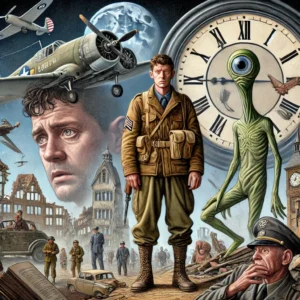 Kurt Vonnegut’s “Slaughterhouse Five,” published in 1969, is a seminal piece of literature that has captivated readers with its unique blend of science fiction, historical narrative, and existential ponderings. This essay will delve into the plot, themes, and comparable works to fully appreciate the depth and impact of this novel. Plot Summary “Slaughterhouse Five” tells …
Kurt Vonnegut’s “Slaughterhouse Five,” published in 1969, is a seminal piece of literature that has captivated readers with its unique blend of science fiction, historical narrative, and existential ponderings. This essay will delve into the plot, themes, and comparable works to fully appreciate the depth and impact of this novel. Plot Summary “Slaughterhouse Five” tells … - An Exploration of Count Zero (1986) by William Gibson
 Dive into William Gibson’s Count Zero (1986), a riveting cyberpunk novel that explores identity, corporate control, and the digital frontier. Follow Turner, Bobby, and Marly as their intertwined fates reveal a dystopian world shaped by technology and ambition. A must-read for sci-fi enthusiasts! #Cyberpunk #SciFi #WilliamGibson
Dive into William Gibson’s Count Zero (1986), a riveting cyberpunk novel that explores identity, corporate control, and the digital frontier. Follow Turner, Bobby, and Marly as their intertwined fates reveal a dystopian world shaped by technology and ambition. A must-read for sci-fi enthusiasts! #Cyberpunk #SciFi #WilliamGibson - A Literary Review of The Expanse Series in order
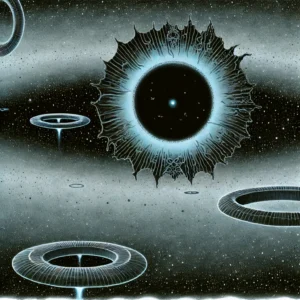 Explore the vast universe of The Expanse series by James S.A. Corey! Dive into a thrilling blend of scientific realism, political intrigue, and deep character development. Perfect for sci-fi enthusiasts! 🌌🚀 #TheExpanse #SciFi #BookRecommendations
Explore the vast universe of The Expanse series by James S.A. Corey! Dive into a thrilling blend of scientific realism, political intrigue, and deep character development. Perfect for sci-fi enthusiasts! 🌌🚀 #TheExpanse #SciFi #BookRecommendations - “The Peripheral”. An Exploration into Gibson’s Futuristic World of Intrigue
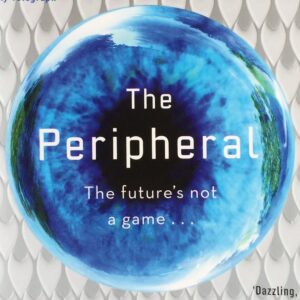 Delve into William Gibson’s futuristic labyrinth in “The Peripheral.” With intricate plotting and thought-provoking themes, it navigates the intertwining lives of Flynne Fisher and Wilf Netherton across temporal boundaries. Explore the consequences of unchecked technology and the blurred lines between reality and illusion. #ThePeripheral #WilliamGibson
Delve into William Gibson’s futuristic labyrinth in “The Peripheral.” With intricate plotting and thought-provoking themes, it navigates the intertwining lives of Flynne Fisher and Wilf Netherton across temporal boundaries. Explore the consequences of unchecked technology and the blurred lines between reality and illusion. #ThePeripheral #WilliamGibson - Unraveling the Enigmatic World of Ringworld: A 1,000,000 year old Science Fiction Epic
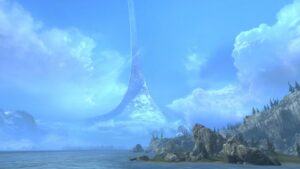 Discover the captivating universe of Larry Niven’s Ringworld, a literary masterpiece that redefined science fiction. Explore its intricate plot, unforgettable characters, thought-provoking themes, and its enduring impact on the genre. Larry Niven’s “Ringworld” is a seminal work of science fiction that continues to captivate readers with its inventive world-building, complex characters, and visionary storytelling. This …
Discover the captivating universe of Larry Niven’s Ringworld, a literary masterpiece that redefined science fiction. Explore its intricate plot, unforgettable characters, thought-provoking themes, and its enduring impact on the genre. Larry Niven’s “Ringworld” is a seminal work of science fiction that continues to captivate readers with its inventive world-building, complex characters, and visionary storytelling. This … - Mona Lisa Overdrive – Conclusion of the Sprawl Trilogy
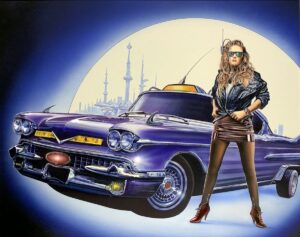 In the neon-lit alleys of the literary world, there exists a timeless masterpiece that continues to captivate readers with its gripping narrative and prophetic vision of a future ruled by technology and corporate greed. “Mona Lisa Overdrive” (1988), penned by the legendary science fiction author William Gibson, is a work of art that has left …
In the neon-lit alleys of the literary world, there exists a timeless masterpiece that continues to captivate readers with its gripping narrative and prophetic vision of a future ruled by technology and corporate greed. “Mona Lisa Overdrive” (1988), penned by the legendary science fiction author William Gibson, is a work of art that has left … - Unraveling the Enigma: The three-Body Problem Novel
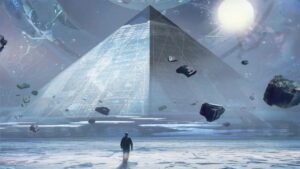 Unlock the secrets of Liu Cixin’s masterpiece, exploring its plot, key characters, themes, inspiration, reviews, cultural impact, similar books, and more. When it comes to groundbreaking science fiction, few works have left as indelible a mark as Liu Cixin’s “The Three-Body Problem.” This celebrated novel has captivated readers worldwide with its mind-bending plot, complex characters, …
Unlock the secrets of Liu Cixin’s masterpiece, exploring its plot, key characters, themes, inspiration, reviews, cultural impact, similar books, and more. When it comes to groundbreaking science fiction, few works have left as indelible a mark as Liu Cixin’s “The Three-Body Problem.” This celebrated novel has captivated readers worldwide with its mind-bending plot, complex characters, … - Exploring “Consider Phlebas”: A Space Odyssey Beyond Imagination
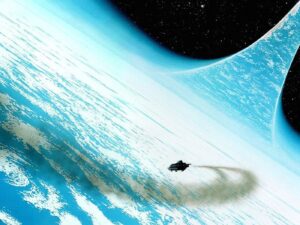 In a universe where civilizations rise and fall like cosmic tides, “Consider Phlebas” emerges as a brilliant star. Join us on a journey through the vast expanse of Iain M. Banks’ mind as we delve into the heart of this science fiction masterpiece. Introduction Iain M. Banks’ “Consider Phlebas” is a science fiction masterpiece that …
In a universe where civilizations rise and fall like cosmic tides, “Consider Phlebas” emerges as a brilliant star. Join us on a journey through the vast expanse of Iain M. Banks’ mind as we delve into the heart of this science fiction masterpiece. Introduction Iain M. Banks’ “Consider Phlebas” is a science fiction masterpiece that … - The Cosmic Odyssey of Liu Cixin: A Journey Through Science Fiction Realms
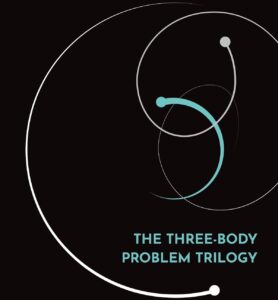 Unlocking the Universe through the Eyes of China’s Sci-Fi Maestro In the boundless cosmos of science fiction literature, few names shine as brightly as Liu Cixin’s. With his visionary storytelling, Liu has catapulted Chinese science fiction onto the global stage. From his awe-inspiring narratives to his cultural impact, Liu Cixin has become a luminary in …
Unlocking the Universe through the Eyes of China’s Sci-Fi Maestro In the boundless cosmos of science fiction literature, few names shine as brightly as Liu Cixin’s. With his visionary storytelling, Liu has catapulted Chinese science fiction onto the global stage. From his awe-inspiring narratives to his cultural impact, Liu Cixin has become a luminary in … - Exploring “Old Man’s War”: Life begins at 75!
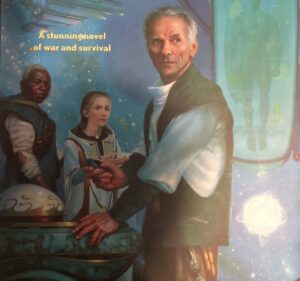 In the vast universe of science fiction literature, there are few novels that have left as indelible a mark as John Scalzi‘s “Old Man’s War.” This gripping space opera, first published in 2005, has captured the hearts and minds of readers worldwide with its unique blend of action, humor, and profound exploration of the human …
In the vast universe of science fiction literature, there are few novels that have left as indelible a mark as John Scalzi‘s “Old Man’s War.” This gripping space opera, first published in 2005, has captured the hearts and minds of readers worldwide with its unique blend of action, humor, and profound exploration of the human … - The Wind from Nowhere: J.G. Ballard’s 550 MPH Apocalyptic Masterpiece
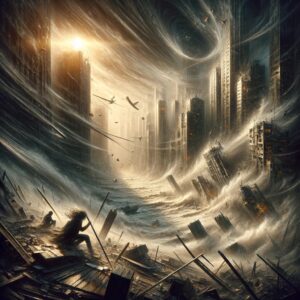 Unveiling the Dystopian World of J.G. Ballard In the realm of science fiction, certain authors stand out as visionary pioneers, creators of worlds that challenge our perceptions of reality and humanity. One such luminary is J.G. Ballard, a writer known for his exploration of the human psyche under the influence of extreme environments. Among his …
Unveiling the Dystopian World of J.G. Ballard In the realm of science fiction, certain authors stand out as visionary pioneers, creators of worlds that challenge our perceptions of reality and humanity. One such luminary is J.G. Ballard, a writer known for his exploration of the human psyche under the influence of extreme environments. Among his … - Unveiling the Intrigue: Spook Country (2007) – A Literary Masterpiece
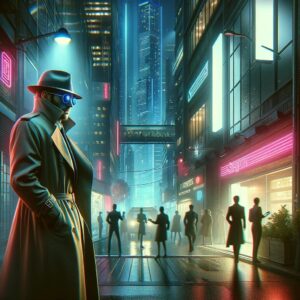 In the realm of contemporary literature, few authors can rival the enigmatic and visionary storytelling of William Gibson. “Spook Country” (2007) stands as a testament to Gibson’s narrative prowess, offering readers a mesmerizing journey through a world where technology and espionage intertwine. In this article, we embark on an in-depth exploration of “Spook Country,” dissecting …
In the realm of contemporary literature, few authors can rival the enigmatic and visionary storytelling of William Gibson. “Spook Country” (2007) stands as a testament to Gibson’s narrative prowess, offering readers a mesmerizing journey through a world where technology and espionage intertwine. In this article, we embark on an in-depth exploration of “Spook Country,” dissecting … - Arthur C. Clarke: The Visionary Pioneer of Science Fiction
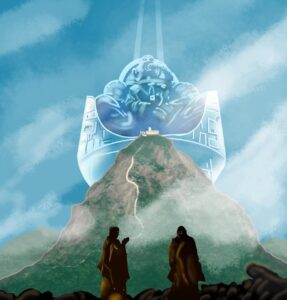 In the vast cosmos of science fiction literature, there exists a celestial body of work that continues to shine with unparalleled brilliance. At the heart of this luminous constellation is the name Arthur C. Clarke – a luminary whose imaginative prowess and scientific acumen have left an indelible mark on the genre. With a career …
In the vast cosmos of science fiction literature, there exists a celestial body of work that continues to shine with unparalleled brilliance. At the heart of this luminous constellation is the name Arthur C. Clarke – a luminary whose imaginative prowess and scientific acumen have left an indelible mark on the genre. With a career … - The Cyberpunk Pioneer: Exploring William Gibson’s Impactful Literary Legacy
 Explore William Gibson’s cyberpunk universe and his profound impact on literature.#novels #books #bookstagram #novel #literature #bookaddict #bookworm #fiction #reading https://literaturelegends.com/william-gibson/
Explore William Gibson’s cyberpunk universe and his profound impact on literature.#novels #books #bookstagram #novel #literature #bookaddict #bookworm #fiction #reading https://literaturelegends.com/william-gibson/ - Unraveling “Chocky”: A Sci-Fi Masterpiece by John Wyndham
 If you’re a fan of thought-provoking science fiction that delves into the complexities of human nature and the unknown, then “Chocky” by John Wyndham is a must-read. This timeless novel has captured the imaginations of readers for decades, offering a unique blend of suspense, intrigue, and philosophical exploration. In this article, we’ll take a deep …
If you’re a fan of thought-provoking science fiction that delves into the complexities of human nature and the unknown, then “Chocky” by John Wyndham is a must-read. This timeless novel has captured the imaginations of readers for decades, offering a unique blend of suspense, intrigue, and philosophical exploration. In this article, we’ll take a deep … - Exploring the Evolving World of Speculative Fiction
 Speculative fiction fans, embark on a journey through evolving worlds and limitless possibilities.#novels #books #bookstagram #novel #literature #bookaddict #bookworm #fiction #reading
Speculative fiction fans, embark on a journey through evolving worlds and limitless possibilities.#novels #books #bookstagram #novel #literature #bookaddict #bookworm #fiction #reading - Exploring the Visionary World of J.G. Ballard: Master of Dystopian Dreams
 Unraveling the Mind of a Literary Maverick In the vast realm of speculative fiction, few names shine as brightly as that of J.G. Ballard. This prolific British author stands as a luminary in the science fiction genre, known for his unflinching exploration of the human psyche, obsession with technology, and unique narrative style. Join us …
Unraveling the Mind of a Literary Maverick In the vast realm of speculative fiction, few names shine as brightly as that of J.G. Ballard. This prolific British author stands as a luminary in the science fiction genre, known for his unflinching exploration of the human psyche, obsession with technology, and unique narrative style. Join us … - The Diamond Age: A Futuristic Tale of Technology, Society, and Education
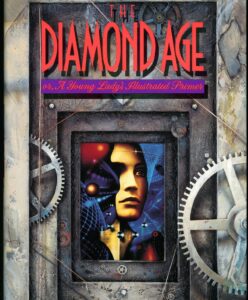 In Neal Stephenson’s “The Diamond Age,” a world of nanotechnology, artificial intelligence, and societal divisions collide, resulting in a thrilling narrative that explores the power of education, the impact of technology, and the quest for self-identity. Introduction In the ever-evolving landscape of science fiction literature, few works stand out as boldly as Neal Stephenson’s “The …
In Neal Stephenson’s “The Diamond Age,” a world of nanotechnology, artificial intelligence, and societal divisions collide, resulting in a thrilling narrative that explores the power of education, the impact of technology, and the quest for self-identity. Introduction In the ever-evolving landscape of science fiction literature, few works stand out as boldly as Neal Stephenson’s “The … - Exploring “Player of Games”: A Masterpiece of Sci-Fi Brilliance
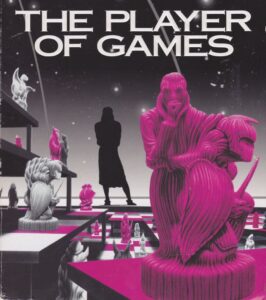 In the vast realm of science fiction literature, there are works that stand out as seminal, genre-defining pieces that leave an indelible mark on both readers and the genre itself. One such literary gem is “Player of Games” by the renowned British author Iain M. Banks. Published in 1988, this novel is the second installment …
In the vast realm of science fiction literature, there are works that stand out as seminal, genre-defining pieces that leave an indelible mark on both readers and the genre itself. One such literary gem is “Player of Games” by the renowned British author Iain M. Banks. Published in 1988, this novel is the second installment … - Stanisław Lem: Exploring the Visionary Worlds of a Sci-Fi Maestro
 Unlocking the Genius of Stanisław Lem: A Journey Through His Worlds Stanisław Lem, the visionary Polish author, was a literary luminary whose imagination knew no bounds. Born in Lviv, Poland, in 1921, and passing away in 2006, Lem left an indelible mark on the world of science fiction. His literary prowess transcended boundaries, captivating readers …
Unlocking the Genius of Stanisław Lem: A Journey Through His Worlds Stanisław Lem, the visionary Polish author, was a literary luminary whose imagination knew no bounds. Born in Lviv, Poland, in 1921, and passing away in 2006, Lem left an indelible mark on the world of science fiction. His literary prowess transcended boundaries, captivating readers … - Exploring “Seveneves”: A Sci-Fi Epic of Catastrophe and Survival
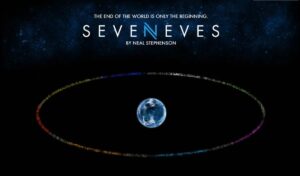 In the vast and ever-evolving realm of science fiction literature, certain books stand out as game-changers, pushing the boundaries of imagination and challenging our understanding of the universe. “Seveneves” by Neal Stephenson is undeniably one of those groundbreaking works. With a narrative that spans millennia and explores the resilience of humanity in the face of …
In the vast and ever-evolving realm of science fiction literature, certain books stand out as game-changers, pushing the boundaries of imagination and challenging our understanding of the universe. “Seveneves” by Neal Stephenson is undeniably one of those groundbreaking works. With a narrative that spans millennia and explores the resilience of humanity in the face of … - Unforgettable Space Opera Epics: Journey Beyond the Stars
 🚀 Dive into the epic world of space operas! Explore grand interstellar battles, complex characters, and intricate political intrigues that define this captivating genre. Discover why series like The Expanse and Dune continue to enthrall fans. Read the full article now! 🌌 #SpaceOpera #SciFi #TheExpanse #Dune #ScienceFiction
🚀 Dive into the epic world of space operas! Explore grand interstellar battles, complex characters, and intricate political intrigues that define this captivating genre. Discover why series like The Expanse and Dune continue to enthrall fans. Read the full article now! 🌌 #SpaceOpera #SciFi #TheExpanse #Dune #ScienceFiction - Exploring Roadside Picnic: A Sci-Fi Masterpiece
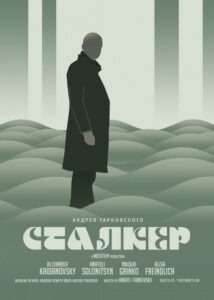 In the realm of science fiction literature, there exist certain works that stand as timeless classics, pushing the boundaries of imagination and challenging our perceptions of reality. One such masterpiece is “Roadside Picnic” by Arkady and Boris Strugatsky. This article delves deep into the enigmatic world of “Roadside Picnic,” unraveling its intricate plot, introducing its …
In the realm of science fiction literature, there exist certain works that stand as timeless classics, pushing the boundaries of imagination and challenging our perceptions of reality. One such masterpiece is “Roadside Picnic” by Arkady and Boris Strugatsky. This article delves deep into the enigmatic world of “Roadside Picnic,” unraveling its intricate plot, introducing its … - Dan Simmons: A Literary Odyssey Through Genres, Themes, and Impact
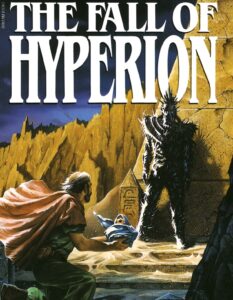 Unveiling the Multifaceted World of Dan Simmons If you’re a fervent explorer of the literary universe, you’ve likely encountered the name Dan Simmons. This versatile and prolific author has carved his niche in the world of literature, traversing multiple genres, weaving intricate themes, and leaving an indelible mark on contemporary fiction. In this comprehensive journey …
Unveiling the Multifaceted World of Dan Simmons If you’re a fervent explorer of the literary universe, you’ve likely encountered the name Dan Simmons. This versatile and prolific author has carved his niche in the world of literature, traversing multiple genres, weaving intricate themes, and leaving an indelible mark on contemporary fiction. In this comprehensive journey … - Unveiling the Enigma: Cryptonomicon – A Tale of Codes, War, and Innovation
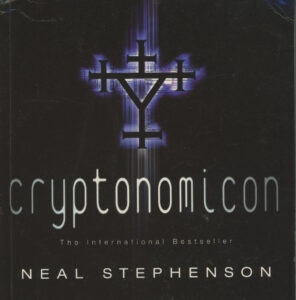 Cryptonomicon: A Modern Epic of Code, War, and the Triumph of Human Ingenuity In the world of literature, some books transcend mere storytelling to become cultural touchstones. Neal Stephenson’s “Cryptonomicon” is one such masterpiece. Published in 1999, this sprawling narrative weaves together the past and present, exploring themes of cryptography, World War II, mathematics, and …
Cryptonomicon: A Modern Epic of Code, War, and the Triumph of Human Ingenuity In the world of literature, some books transcend mere storytelling to become cultural touchstones. Neal Stephenson’s “Cryptonomicon” is one such masterpiece. Published in 1999, this sprawling narrative weaves together the past and present, exploring themes of cryptography, World War II, mathematics, and … - Surviving the Green Apocalypse: The Day of the Triffids
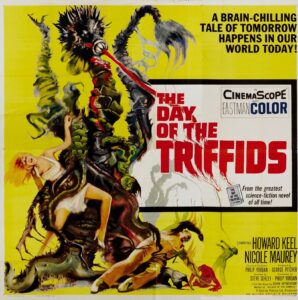 In a world plunged into darkness and chaos, where the very fabric of society unravels, John Wyndham’s “The Day of the Triffids” paints a hauntingly vivid picture of an apocalyptic future. This classic science fiction novel, published in 1951, has left an indelible mark on the genre and continues to captivate readers with its gripping …
In a world plunged into darkness and chaos, where the very fabric of society unravels, John Wyndham’s “The Day of the Triffids” paints a hauntingly vivid picture of an apocalyptic future. This classic science fiction novel, published in 1951, has left an indelible mark on the genre and continues to captivate readers with its gripping … - Unveiling the World of “Do Androids Dream of Electric Sheep?” by Philip K. Dick
 Uncover the gripping narrative, memorable characters, and enduring impact of Philip K. Dick’s sci-fi classic. In the realm of science fiction literature, few authors have left as indelible a mark as Philip K. Dick. His visionary tales of alternate realities, the nature of humanity, and the blurred line between man and machine have enthralled readers …
Uncover the gripping narrative, memorable characters, and enduring impact of Philip K. Dick’s sci-fi classic. In the realm of science fiction literature, few authors have left as indelible a mark as Philip K. Dick. His visionary tales of alternate realities, the nature of humanity, and the blurred line between man and machine have enthralled readers … - Kurt Vonnegut: Crafting Cosmic Satire and Sci-Fi Dreams
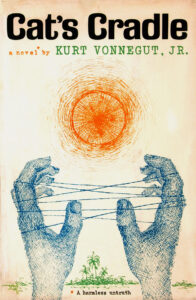 Introduction In the vast galaxy of literature, certain authors shine as brilliant stars, leaving an indelible mark on the minds of readers. Kurt Vonnegut is undeniably one such star—a literary luminary whose works have illuminated the realms of satire, science fiction, and dark humor. This article will take you on an engaging journey through the …
Introduction In the vast galaxy of literature, certain authors shine as brilliant stars, leaving an indelible mark on the minds of readers. Kurt Vonnegut is undeniably one such star—a literary luminary whose works have illuminated the realms of satire, science fiction, and dark humor. This article will take you on an engaging journey through the … - Exploring 7 Fascinating Sci-Fi Subgenres: From Dystopia to Space Opera
 In the vast galaxy of literary genres, science fiction stands out as a nebula of creativity, offering a multitude of subgenres that cater to a diverse range of tastes and imaginations. Whether you’re a fan of futuristic dystopias, mind-bending cyberpunk, or epic space operas, the world of science fiction has something for everyone. In this …
In the vast galaxy of literary genres, science fiction stands out as a nebula of creativity, offering a multitude of subgenres that cater to a diverse range of tastes and imaginations. Whether you’re a fan of futuristic dystopias, mind-bending cyberpunk, or epic space operas, the world of science fiction has something for everyone. In this … - The Top 20 Cyberpunk Novels: A Glimpse into the Futuristic Dystopia
 In the ever-evolving landscape of science fiction literature, one subgenre has consistently captured the imaginations of readers and writers alike – Cyberpunk. With its gritty portrayal of high-tech, dystopian futures, cyberpunk has become a defining genre in the world of speculative fiction. In this exploration, we will delve into the essence of cyberpunk, its history, …
In the ever-evolving landscape of science fiction literature, one subgenre has consistently captured the imaginations of readers and writers alike – Cyberpunk. With its gritty portrayal of high-tech, dystopian futures, cyberpunk has become a defining genre in the world of speculative fiction. In this exploration, we will delve into the essence of cyberpunk, its history, … - The Fascinating World of Steampunk: A Journey Through Time and Steam
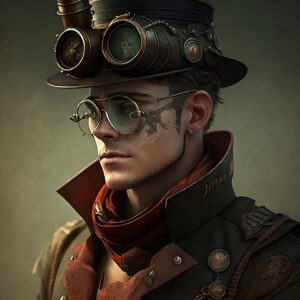 Steampunk, a genre that seamlessly blends the past and future, is a subculture and literary movement that has captivated the imaginations of many. With its intricate machinery, Victorian aesthetics, and a dash of science fiction, steampunk has become a beloved and enduring phenomenon. In this exploration of the genre, we will define steampunk, delve into …
Steampunk, a genre that seamlessly blends the past and future, is a subculture and literary movement that has captivated the imaginations of many. With its intricate machinery, Victorian aesthetics, and a dash of science fiction, steampunk has become a beloved and enduring phenomenon. In this exploration of the genre, we will define steampunk, delve into … - Unveiling the Enigma: Exploring “Excession” by Iain M. Banks
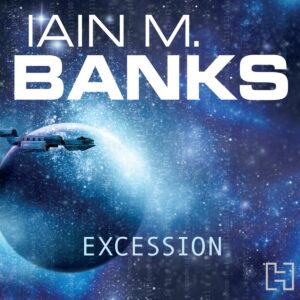 Unlocking the Mysteries of the Universe in this Sci-Fi Masterpiece In the ever-expanding galaxy of science fiction literature, Iain M. Banks stands as a luminary, and “Excession” is undoubtedly one of his most enigmatic and thought-provoking creations. With its intricate plot, unforgettable characters, and profound themes, this novel has left an indelible mark on the …
Unlocking the Mysteries of the Universe in this Sci-Fi Masterpiece In the ever-expanding galaxy of science fiction literature, Iain M. Banks stands as a luminary, and “Excession” is undoubtedly one of his most enigmatic and thought-provoking creations. With its intricate plot, unforgettable characters, and profound themes, this novel has left an indelible mark on the … - John Scalzi: A Journey Through the Worlds of Sci-Fi
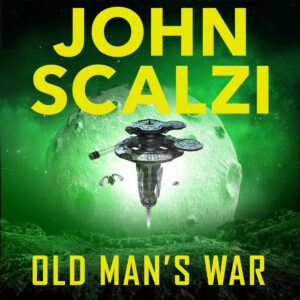 Unveiling the Genius of John Scalzi, His Key Works, Themes, and Cultural Impact John Scalzi, the prolific mastermind behind a plethora of science fiction wonders, has etched his name into the annals of speculative literature. With his boundless creativity, razor-sharp wit, and unique narrative flair, Scalzi has emerged as a luminary in the world of …
Unveiling the Genius of John Scalzi, His Key Works, Themes, and Cultural Impact John Scalzi, the prolific mastermind behind a plethora of science fiction wonders, has etched his name into the annals of speculative literature. With his boundless creativity, razor-sharp wit, and unique narrative flair, Scalzi has emerged as a luminary in the world of … - Unveiling the Mystique of Frank Herbert’s Dune Saga: 6 Books that Redefined Science Fiction
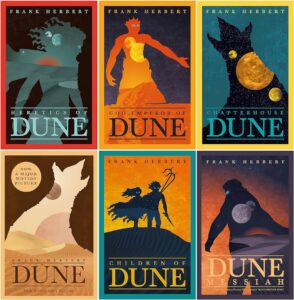 Uncover the epic world of Frank Herbert’s Dune saga, where politics, religion, and ecology converge in a mesmerizing blend of science fiction and fantasy. Explore the key books, themes, reviews, and cultural impact of this literary masterpiece. Frank Herbert‘s Dune saga is an enduring treasure trove for science fiction enthusiasts. With its intricate plotlines, complex …
Uncover the epic world of Frank Herbert’s Dune saga, where politics, religion, and ecology converge in a mesmerizing blend of science fiction and fantasy. Explore the key books, themes, reviews, and cultural impact of this literary masterpiece. Frank Herbert‘s Dune saga is an enduring treasure trove for science fiction enthusiasts. With its intricate plotlines, complex … - Exploring the Top 20 Hard Sci-Fi Classics: A Journey Through the Cosmos
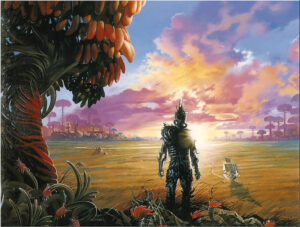 Uncover the rich history, evolution, and influential works of the hard science fiction genre. Hard science fiction, a subgenre of science fiction, has captivated readers and viewers for decades with its emphasis on scientific accuracy and realistic extrapolation of current scientific knowledge. This genre goes beyond the realms of mere imagination and delves deep into …
Uncover the rich history, evolution, and influential works of the hard science fiction genre. Hard science fiction, a subgenre of science fiction, has captivated readers and viewers for decades with its emphasis on scientific accuracy and realistic extrapolation of current scientific knowledge. This genre goes beyond the realms of mere imagination and delves deep into … - Exploring the Universe of Frederik Pohl’s Books: 7 Key Works and Their Impact
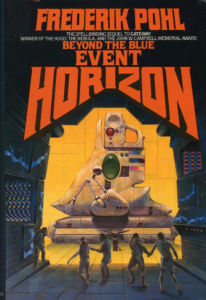 Unlocking the Multiverse of Sci-Fi Brilliance by Frederik Pohl In the vast galaxy of science fiction literature, few names shine as brightly as Frederik Pohl. Over a career spanning more than seven decades, Pohl left an indelible mark on the genre, influencing countless authors and shaping the way we think about the future. This article …
Unlocking the Multiverse of Sci-Fi Brilliance by Frederik Pohl In the vast galaxy of science fiction literature, few names shine as brightly as Frederik Pohl. Over a career spanning more than seven decades, Pohl left an indelible mark on the genre, influencing countless authors and shaping the way we think about the future. This article … - Exploring the Literary Universe of Ray Bradbury: 7 Key Books, Themes, and Cultural Impact
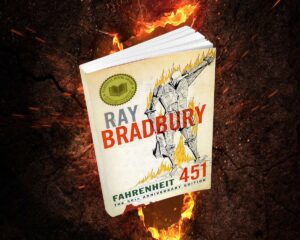 Unlocking the Mysteries and Magic of Ray Bradbury’s Iconic Works Ray Bradbury, a master of the written word, crafted a body of work that continues to captivate readers of all ages and backgrounds. With over 600 published works, his contribution to literature is nothing short of legendary. In this comprehensive exploration, we’ll delve into the …
Unlocking the Mysteries and Magic of Ray Bradbury’s Iconic Works Ray Bradbury, a master of the written word, crafted a body of work that continues to captivate readers of all ages and backgrounds. With over 600 published works, his contribution to literature is nothing short of legendary. In this comprehensive exploration, we’ll delve into the … - Unveiling the Top 20 Dystopian Novels: Exploring a Bleak Literary Universe
 In a world teetering on the edge of chaos, dystopian literature offers a glimpse into our darkest fears and wildest imaginations. From Orwell’s thought-provoking “1984” to Atwood’s haunting “The Handmaid’s Tale,” this article delves into the captivating realm of dystopian novels. Join us as we define the genre, trace its historical roots, and explore its …
In a world teetering on the edge of chaos, dystopian literature offers a glimpse into our darkest fears and wildest imaginations. From Orwell’s thought-provoking “1984” to Atwood’s haunting “The Handmaid’s Tale,” this article delves into the captivating realm of dystopian novels. Join us as we define the genre, trace its historical roots, and explore its … - Unleashing the Depths: The Kraken Wakes – A Deep Dive into John Wyndham’s Masterpiece
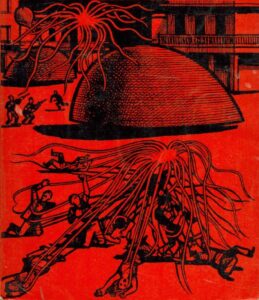 Explore the eerie depths of the ocean and the human psyche as we unravel the mysteries of “The Kraken Wakes” by John Wyndham. In the realm of science fiction literature, certain works stand out as timeless classics that continue to captivate readers long after their publication. “The Kraken Wakes,” authored by the renowned British writer …
Explore the eerie depths of the ocean and the human psyche as we unravel the mysteries of “The Kraken Wakes” by John Wyndham. In the realm of science fiction literature, certain works stand out as timeless classics that continue to captivate readers long after their publication. “The Kraken Wakes,” authored by the renowned British writer … - Brave New World: Exploring Aldous Huxley’s Dystopian Masterpiece
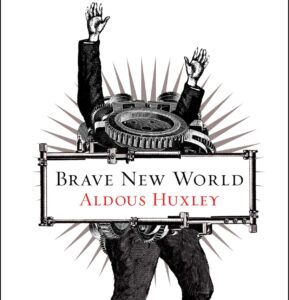 In the not-so-distant future, society has undergone a radical transformation. The confines of individuality have given way to a homogenized existence, where happiness is manufactured, and freedom is an illusion. Welcome to Aldous Huxley‘s “Brave New World,” a thought-provoking dystopian novel that has captivated readers for generations. In this extensive exploration, we delve into the …
In the not-so-distant future, society has undergone a radical transformation. The confines of individuality have given way to a homogenized existence, where happiness is manufactured, and freedom is an illusion. Welcome to Aldous Huxley‘s “Brave New World,” a thought-provoking dystopian novel that has captivated readers for generations. In this extensive exploration, we delve into the … - Exploring the Enigmatic Worlds of John Wyndham: 5 Must-Read Books
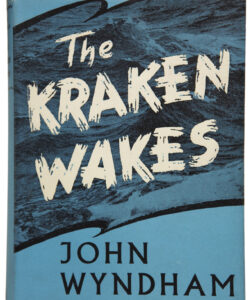 Unraveling the Genius of John Wyndham: A Journey Through His Unforgettable Worlds When it comes to the realm of science fiction and speculative fiction, few authors have left as indelible a mark as John Wyndham. With a pen as mighty as a rocket ship, Wyndham crafted tales that transcended the boundaries of time and space, …
Unraveling the Genius of John Wyndham: A Journey Through His Unforgettable Worlds When it comes to the realm of science fiction and speculative fiction, few authors have left as indelible a mark as John Wyndham. With a pen as mighty as a rocket ship, Wyndham crafted tales that transcended the boundaries of time and space, … - Exploring the Multiverse of Neal Stephenson’s Literary Odyssey
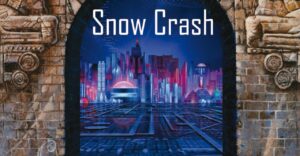 Unveiling the Intricacies of Neal Stephenson’s Books, Themes, and Impact on Culture Neal Stephenson, a luminary of contemporary speculative fiction, has left an indelible mark on the literary landscape. With a penchant for intricately woven narratives, thought-provoking themes, and an uncanny ability to blend history, science, and philosophy, Stephenson’s books transport readers to worlds both …
Unveiling the Intricacies of Neal Stephenson’s Books, Themes, and Impact on Culture Neal Stephenson, a luminary of contemporary speculative fiction, has left an indelible mark on the literary landscape. With a penchant for intricately woven narratives, thought-provoking themes, and an uncanny ability to blend history, science, and philosophy, Stephenson’s books transport readers to worlds both … - Iain M. Banks’ Culture Novels: A Galaxy of Utopian Science Fiction
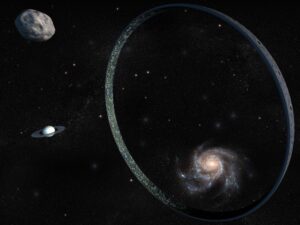 Discover the immersive world of Iain M. Banks’ Culture novels, a groundbreaking series that has redefined the science fiction genre. Explore the history, developments, influential books, and authors that have left an indelible mark on readers and writers alike. In the realm of science fiction, few authors have managed to captivate readers as thoroughly as …
Discover the immersive world of Iain M. Banks’ Culture novels, a groundbreaking series that has redefined the science fiction genre. Explore the history, developments, influential books, and authors that have left an indelible mark on readers and writers alike. In the realm of science fiction, few authors have managed to captivate readers as thoroughly as … - Exploring the Enigmatic Worlds of Iain Banks: 7 Key Books and Their Lasting Cultural Impact
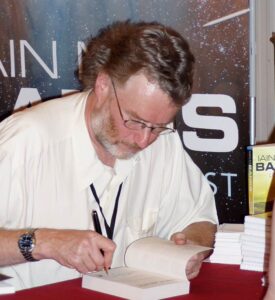 Iain Banks, a master storyteller known for his intriguing blend of science fiction, contemporary fiction, and innovative world-building, has left an indelible mark on the literary landscape. With a diverse range of novels that span across various genres, his writing resonates with readers by delving into complex themes and challenging societal norms. In this in-depth …
Iain Banks, a master storyteller known for his intriguing blend of science fiction, contemporary fiction, and innovative world-building, has left an indelible mark on the literary landscape. With a diverse range of novels that span across various genres, his writing resonates with readers by delving into complex themes and challenging societal norms. In this in-depth … - 20 Essential Sci-Fi Novels: Exploring the Depths of Imagination and Technology
 Unveiling the most iconic science fiction novels that shaped the genre and redefined literature. Introduction Science fiction, often abbreviated as Sci-Fi, is a captivating genre that ignites our imagination by blending speculative concepts with scientific principles. It has taken readers on mind-bending journeys through time, space, and alternate realities. This article delves into the heart …
Unveiling the most iconic science fiction novels that shaped the genre and redefined literature. Introduction Science fiction, often abbreviated as Sci-Fi, is a captivating genre that ignites our imagination by blending speculative concepts with scientific principles. It has taken readers on mind-bending journeys through time, space, and alternate realities. This article delves into the heart … - Neuromancer: The Cyberpunk Classic that Redefined Science Fiction
 Introduction In the vast landscape of science fiction literature, there are certain works that stand out as game-changers, pioneering new subgenres and redefining the way we think about technology and society. One such book is “Neuromancer,” written by William Gibson and published in 1984. This cyberpunk classic not only birthed an entire subgenre but also …
Introduction In the vast landscape of science fiction literature, there are certain works that stand out as game-changers, pioneering new subgenres and redefining the way we think about technology and society. One such book is “Neuromancer,” written by William Gibson and published in 1984. This cyberpunk classic not only birthed an entire subgenre but also …

